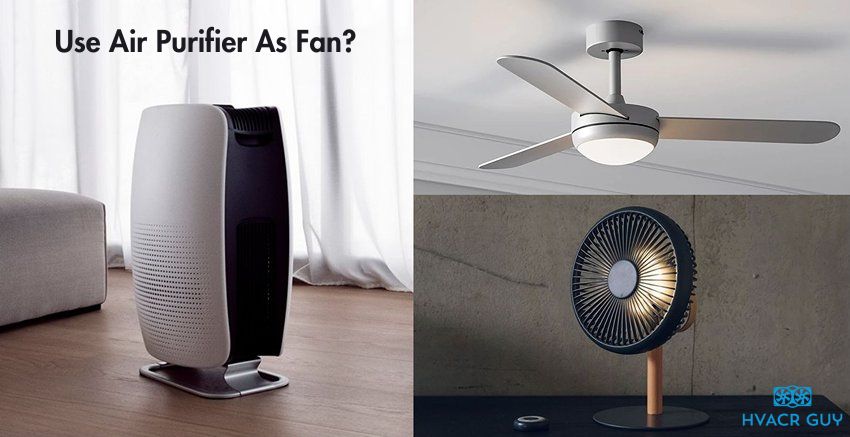Last Updated on April 13, 2024
In winter, you might want to couple an air purifier with a heater to maintain a comfortable temperature indoors as well as improved air quality and reduced odors.
But can air purifiers and heaters work together in the same room at the same time?
To use an air purifier and heater simultaneously in your room, maintain sufficient distance between them so that hot air from the heater doesn’t damage air purifier filters. Also, avoid heater options that need consistent fresh airflow as air purifiers are only effective in closed spaces.
The kind of heater you plan to use with your air purifier matters. Because if you opt for an ‘oxygen-consuming’ heater for your living space, you will have to manage air circulation properly.
Too much ventilation will make your air purifier ineffective and too little of it is not good for your well-being.
In this article, I narrow down how to make air purifiers and heaters work together, the kind of heaters to avoid with air purifiers and better ways to clean air and heat the room at the same time.
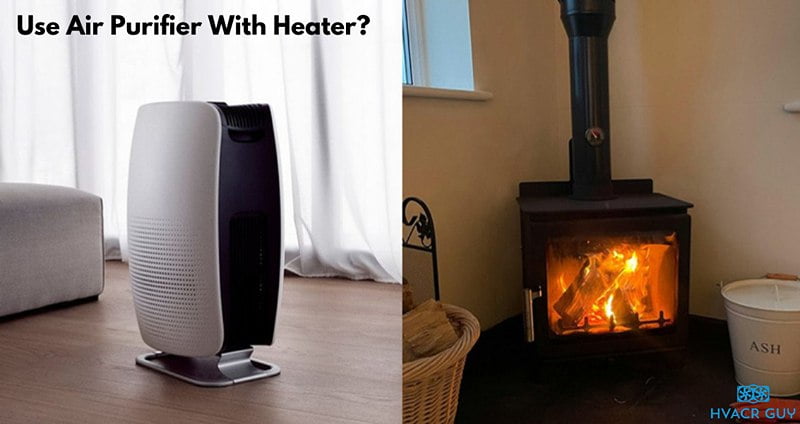
Why Some Heaters May Not Go with Air Purifiers?
The primary reason why some heaters are not recommended to be used in the same room as air purifiers is their necessity for proper ventilation.
Heaters that burn fuel like natural gas furnaces, wooden stoves, and propane and kerosene heaters release carbon monoxide (CO) as a byproduct.
CO is bad for health. It makes the air thin causing a risk of carbon dioxide poisoning leading to headaches, nausea, dizziness, and weakness. Accidental carbon monoxide poisoning sends 100,000 people to hospital every year.
This makes it necessary to have consistent air circulation and ventilation through vents, windows, doors, exhaust fans, etc. for heaters that burn fuel.
Moreover, heaters that burn fuel like natural gas, wood, and oil consume oxygen. This oxygen needs to be replenished through adequate air circulation, to maintain proper oxygen levels in the room.
The dilemma is that air purifiers are usually effective in spaces with reduced ventilation only.
If air from outdoors is high, your air purifier won’t be able to keep up with unfiltered air. This will either mean no net air purification or at a very slow pace.
Due to this heaters that burn fuel and air purifiers cannot work together. Heaters of this kind will need thorough ventilation which will make air purifiers ineffective.
Don’t worry though. Many kinds of heaters don’t have the requirement of opening windows, vents, or any other kind of additional ventilation.
In fact, most modern heaters that you find nowadays don’t burn fuel which means no carbon monoxide release and no oxygen consumption. Have a look at these categories of heaters compatible with air purifiers on this basis.
| Type of Heater | Compatibility with Air Purifier in Closed Room |
|---|---|
| Blower Fan | Compatible |
| Reflection | Compatible |
| Halogen | Compatible |
| Infrared | Compatible |
| Ceramic | Compatible |
| Baseboard | Compatible |
| Oil Filled | Compatible |
| Kerosene Oil | Incompatible |
| Wood Stove and Fire Heaters | Incompatible |
| Propane | Incompatible |
| Natural Gas | Incompatible, Compatible With Independent Ventilation |
Which Heaters are Popular? Can You Use Them With Air Purifiers?
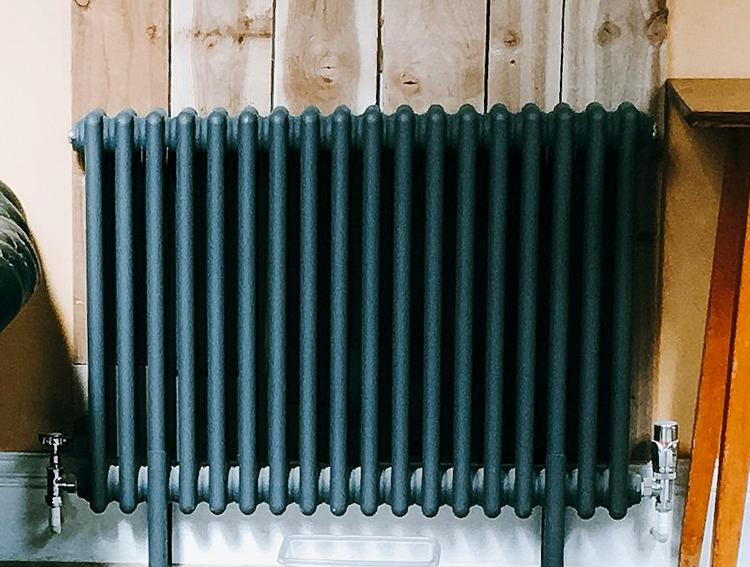
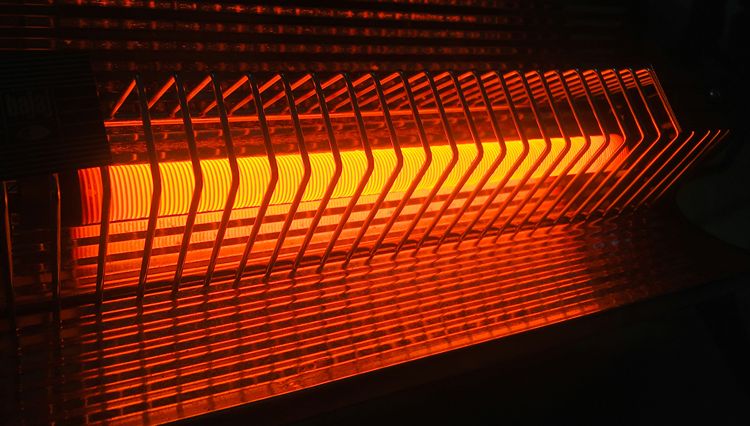
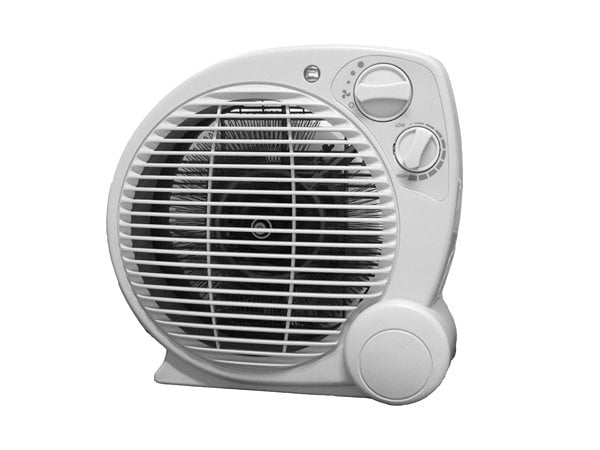
Electrical space heaters and electrical furnaces are becoming very popular in many US states that do not need any additional ventilation through open windows, vents, exhaust and blower fans, etc.
This mean for most electrical heater options you won’t have to worry about using them with air purifiers in closed rooms. This is because they burn no fuel, which means no CO generation, and no requirement for additional ventilation.
Most of the homes in the US use natural gas furnaces that need fresh airflow from outside to replenish the oxygen that is consumed during the burning of fuel.
Note: For gas and wood fuel heaters, the requirement for additional ventilation depends on their setup and configuration.
For example, natural gas furnaces do consume oxygen and release carbon monoxide but with a system of heat exchangers and ducts only warm air is circulated throughout the living space and not the actual combustion byproducts.
So for these types of large-scale natural gas heaters with independent ventilation, you can safely close your room and use an air purifier in it. Still be cautious though, in case of a leak, CO could vent into your living space. To prevent that:
- Get your furnace inspected every year.
- Install CO detectors in sleeping areas of your home.
- Keep refreshing air inside your home from outdoors.
Where to Place Heater and Air Purifier in Your Room?
With the right kind of heater, you won’t have any problem using it with an air purifier. They will work together to maintain a cleaner and warmer environment.
However, make sure both appliances are placed in a way that they don’t hurt each other.
Place heater and air purifier far from each other and position the heater’s outlet in a different direction than the air purifier’s inlet.
Otherwise, there is a possibility that hot air from the heater’s outlet may be sucked directly into your air purifier’s inlet causing its filters to damage.
A Way to Heat and Purify Air with a Single Package
What if you could heat as well as purify air with a single appliance?
This will save you from the hassle of managing multiple appliances, handling their separate wires, preventing them from damaging each other, and saving you from unnecessary power consumption.
Well, I came across something that does both heating and air purification. In fact, it could also cool. Have a look at the Dyson Hot and Cool Air Purifier.
It can oscillate up to 350 degrees with a timer and a built-in thermostat. It is designed without blades which is very helpful with pets and infants.
And yes, it does have a HEPA filter in it to ensure quality air cleaning of microparticles.
You may find other similar products in the market but I selected this one based on performance, mobility, and quality of filters.
Personally, I am OK with the remote-controlled option (the one I linked above) but if you like there is another variant with Wi-Fi control.
Do Heaters Affect Air Purifier Effectiveness and Vice Versa?
Naturally, as heater warms up your room, relative humidity inside it will decrease. This means that the air inside your room will become drier due to heater.
Moreover, too high humidity may result in mold formation on your air purifier filters. That is why many manufacturers recommend using air purifiers in a humidity lower than about 85 percent.
Generally, CADR (Clean Air Delivery Rate) of air purifiers and performance of their HEPA filter increases as humidity becomes lower.
All this means that using a heater will generally improve your air purifier’s airflow rate, overall performance and life.


